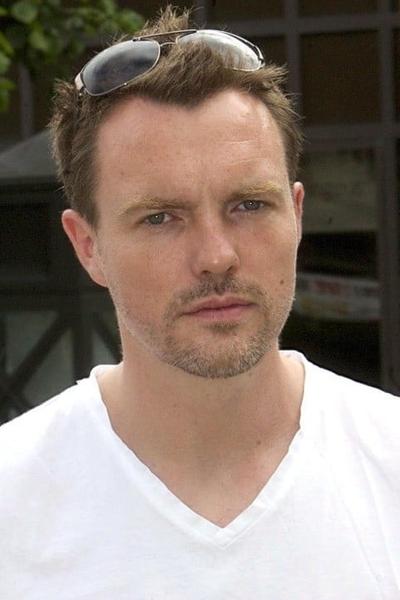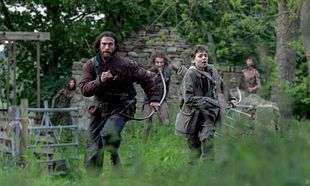Unable to pick up the pieces after the death of her baby and her husband six years previous, Ruth (Dunne) has resorted to the bottle to get her through the days. Not trusted by her superiors to return to the beat, this has led the acerbic guard to be relegated to a humiliating and boring desk job. Group therapy hasn't helped. Neither has the local priest. And her in-laws, whose irregular visits are a nuisance, only serve to remind her what she's lost. Then one day she gets an idea to put all this right again, to assuage the guilt and relieve herself of the pain in one foul swoop…
After dipping a toe into mental illness with his screenplay for the Colm Meaney vehicle Parked, Ciaran Creagh, moving into the director's seat here, goes in two-footed, studs showing. Ireland has produced some raw explorations of women on the verge of late with Eden, Mammal and Snap but the considerably darker In View is an unblinking investigation into grief and depression. The bleak is unrelenting. There are no easy answers, no cosy corners, no moments of levity; Creagh's direction is not flashy and his scenes take their time to wind up, allowing (or forcing) the audience to crawl inside the fraught mind of this tormented woman and experience what she's going through. You're there for every pitiful step of the way. This is not an easy watch and nor is it meant to be.
If the direction takes its time, so does the story. Creagh's patient storytelling drip feeds the information on what happened with each small revelation allowing us to understand Ruth and her dilemma a little more. If there are bum notes it’s when Ruth's belated outbursts on what is really going on in her mind show the writer’s hand and snap one out of the oppressive fog Creagh so wonderfully created: her poetic words in these moments don't sound like they should be coming from this character’s mouth.
But this is nitpicking as In View boasts some tough and honest portrayals of depression (Joe Mullins, who played the under pressure farmer in the equally grim Pilgrim Hill, has a memorable scene in therapy). In the lead role, Love/Hate's Caoifhionn Dunne turns in a strong performance. Wonderfully depicting the full range of emotions coursing through her – she's just as liable to cower in a shower as throw a rock through the window of a car (at one point she catches colleague Stuart Graham with a cold right hook), you can't take your eyes off her.


















































































